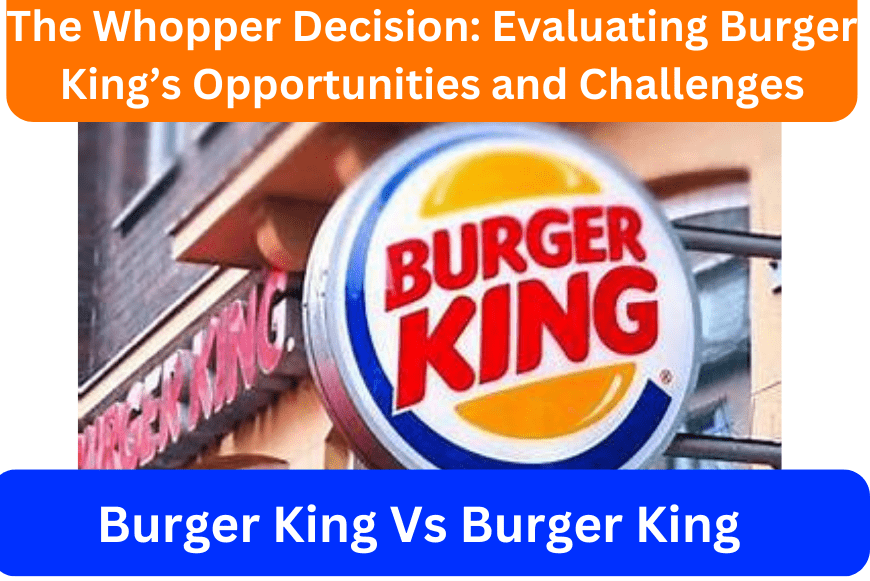The article is written by Shruti Malviya from Team Vakalat Today.
Introduction
In a recent case involving trademark infringement, the United States fast-food giant, Burger King Corporation fell out in a 13-year long legal struggle with one local restaurant located in Pune, Maharashtra. The lawsuit was dropped by the district court of Pune; the company contended that the Pune based café had violated its trademark which enabled it to carry out its business as “Burger King”.
Background
The legal battle between Burger King Corporation and the Pune eatery started in 2011 under a title “Burger King Corporation v. Anahita Irani and Another.” They believed that their brand name “Burger King” had been used by this local café illegally to pass off as the global corporation’s services. In addition, Burger King requested for permanent injunction against the domestic café and claimed ₹20 lakh from its owners
Legal Issues
The key legal issues in this case were:
- Whether BFFS Prashant Food Product the Pune-based ‘Burger King’ eatery t violated the trademark “Burger King”.
- Whether the two brands created a confusion to the customers as to differentiate between the two.
- Whether such an act by the local restaurant, using the name “Burger King” under which it operates had any negative impacts on the global brand and its operations.
Holdings and Decisions
The complainant was Burger King corporation, the defendant was the government of Maharashtra through its officials namely officers and employees of the municipal corporation of Greater Mumbai, the case ID MC/08/018/02 was heard on August 16, 2024, where Pune district judge Sunil Vedpathak dismissed it. As the court also argued it is clear that the establishment that was attempting to register the “Burger King” trademark operated under this name since 1991–92, and thus from the time when the Burger King Corporation itself failed to operate and use the trademark in India until 2014. The judge said that the MNC could not produce the necessary evidence that the Pune restaurant it had an infringement of its trademark and that customers were confused between the two brands.
The court further observed that the Burger King Corporation had “miserably failed” to demonstrate that the local restaurant’s use of the “Burger King” name caused any damage to the global brand’s reputation or business. As a result, the court ruled that the US company was not entitled to any damages, nor was it granted the permanent injunction it sought.
Analysis
The ruling in favor of the Pune-based “Burger King” eatery highlights the importance of the timing of trademark usage, especially when it involves local businesses that have been operating for years before a global corporation enters the market. The court’s decision emphasizes that the Pune eatery’s long-standing use of the name since 1991-92 was a significant factor in its favor.
Impact and Implications
The subsidiarized case of Burger King Corporation against the eatery in Pune reached its end with a ruling in favor of the local entity, which confirmed being allowed to continue the usage of the “Burger King” trademark. The court, by this judgment, pronounced that all similar cases in the future time will now have a guideline to decide matters where local entity businesses with long-established trademarks fight it out against global setups.
Victory for a Pune eatery called “Burger King.” The court has passed a ruling in such a way that they can go ahead using the same name as they have done for the last thirty years. This ruling may even set a precedent for upcoming legal battles of the same nature between global corporations and local small businesses with a clearly defined and prolonged trademark.
Conclusion
The Burger King Corporation’s loss in this trademark infringement case highlights the complexities of trademark law and the need for multinational companies to navigate these challenges carefully when entering new markets. The ruling emphasizes the importance of historical trademark usage and the evidence required to substantiate claims of trademark violations. This case serves as a reminder for global brands and local businesses alike about the significance of proving actual infringement and damage in trademark disputes.
